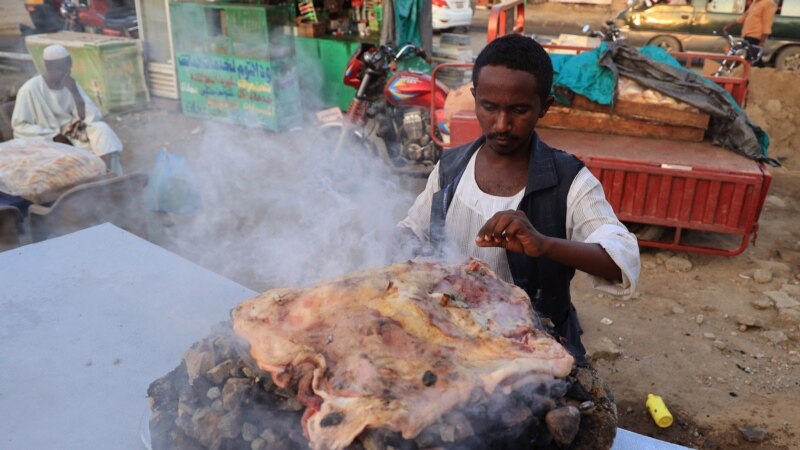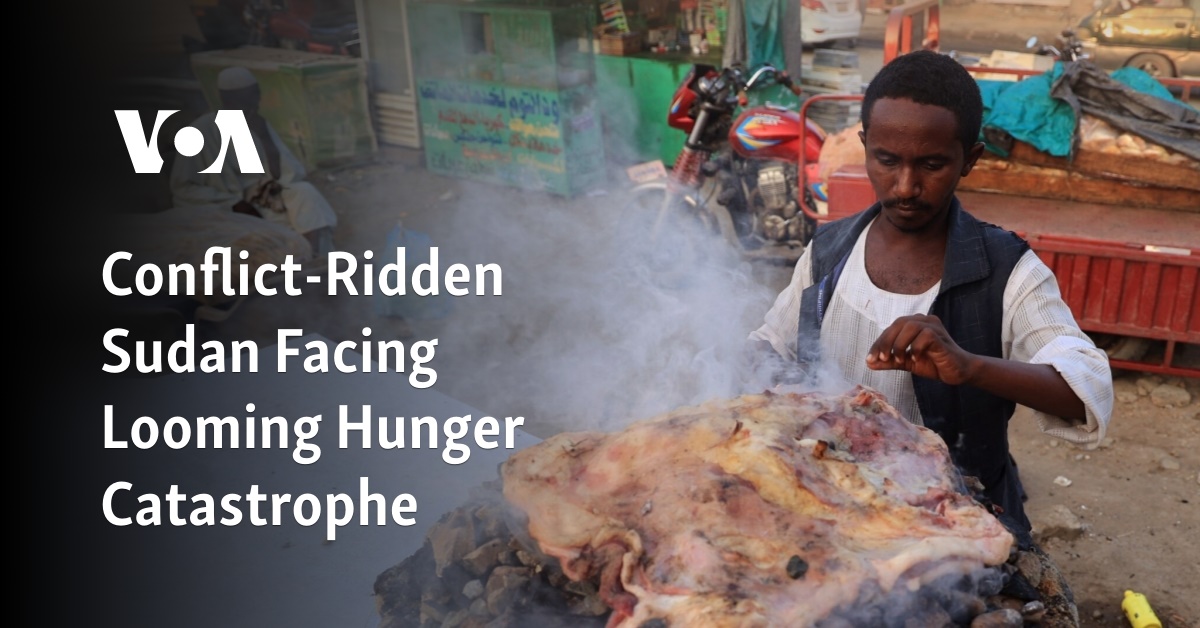This website uses cookies so that we can provide you with the best user experience possible. Cookie information is stored in your browser and performs functions such as recognising you when you return to our website and helping our team to understand which sections of the website you find most interesting and useful.


GENEVA —
As Sudan marks eight months of a horrific war that has killed more than 12,000 people and displaced 6.6 million, United Nations food agencies are warning of a looming hunger catastrophe by next year’s lean season, when food stocks will be at their lowest.
A new analysis released Friday by the Integrated Food Security Phase Classification — a scientific evaluation of food security — warns that nearly 18 million people across Sudan face acute hunger.
"These figures are the highest ever recorded that coincide with Sudan’s harvesting season," a period when more food is available, said Adam Yao, Food and Agriculture Organization, or FAO, deputy representative in Sudan.
Speaking to journalists from Sudan’s Sennar state, he said, "The food crisis is exacerbated by ongoing conflict, escalating violence, low agricultural production, high food prices, climate shocks and displacement."
He warned that more financial support and unimpeded access to people trapped in conflict hotspots is needed to ward off the worst results.
According to the U.N., vulnerable populations in Greater Darfur, Greater Kordofan and Khartoum are most at risk.
"The Sudanese people require more support more than ever," said Yao. "Our immediate action to preserve the lives and livelihoods of rural Sudanese communities is absolutely crucial. The longer we take to respond, the more lives we expose to the imminent threat of famine."
The war, which erupted April 15, was triggered by a power struggle between rival generals from the Sudanese Armed Forces and paramilitary Support Response Forces, unleashing eight months of terror, violence and displacement in what is described as one of the world’s worst humanitarian crises.
"The suffering is unimaginable, yet the crisis has not been getting the international focus and attention that is warranted, as the conflict continues to upend millions of lives and worsen what was already a dire situation," said Leni Kenzli, World Food Program spokesperson.
Speaking from Nairobi, Kenya, Kenzli said regular and safe humanitarian access to civilians in areas worst hit by violence was inadequate, as was international financial support for a crisis of this magnitude.
"Since the start of the conflict, WFP has provided lifesaving assistance to over 5 million people, preventing an even worse deterioration of food security, especially in eastern and northern Sudan.
"Yet, this is only scratching the surface compared to the immense needs that we are seeing on ground," Kenzli said, noting that WFP needed $252 million to provide assistance for 6 million to 7 million people over the next six months.
While the hunger and displacement crises continue to deepen in violent, unstable parts of Sudan, large areas of the country remain relatively calm, and farmers are still able to plant their crops.
Adam Yao said that FAO has helped upwards of a million farmers in places such as Sennar, Kosti and the White Nile state to produce between 2 million and 3 million tons of cereal.
He said FAO needs $75 million to support local food production. "We have to get ready now for the planting season, which goes from May to August," he said.
At the same time, he noted FAO is appealing for a cease-fire "to allow a humanitarian corridor to be opened so that organizations that are distributing food items can have access" to volatile, dangerous areas.
WFP echoed this appeal. Leni Kenzli said, "WFP is urgently calling all parties to the conflict for a humanitarian pause and unfettered access to avert a hunger catastrophe in the coming lean season. Lives are depending on it."



 Africana55 Radio
Africana55 Radio 
